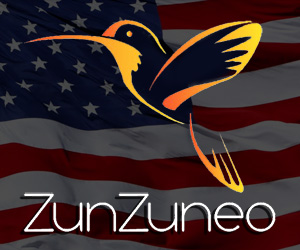More Sanctions? Why the West Continues To Exert Pressure on Russia
(Russia) on 13 May 2014
by Ekaterina Barova (link to original)
Why do the U.S. and the EU keep imposing new sanctions on Russia? We have already withdrawn our troops from the Ukrainian border and requested that independence referendums in southeastern regions be put off. We have even recognized the presidential elections in Ukraine, albeit with reservations, yet that still has not proven enough for the West. Moscow still remains the subject of accusation for "provoking" the events in Ukraine, despite the lack of any "saboteurs" being caught or any other evidence suggesting our hand in them. It seems that objective investigations have been replaced by the speculations Kiev has been disseminating.
Ministers of foreign affairs from 28 EU countries gathered Monday to discuss further sanctions against Russia after already blacklisting 48 people, denying them entry to the EU and barring them from any financial transactions at European banks. This blacklist, by the way, targets not only Russians, but also a number of pro-federalization leaders from southeastern Ukraine. Now that list has been expanded to encompass the names of 13 more people.
In a statement after the discussions, Angela Merkel and Francois Hollande commented on the possibility of further sanctions in the face of Ukraine's upcoming elections. "In the event that internationally recognized presidential elections are not held [in Ukraine on May 25] and the situation there is further destabilized, we are prepared to impose further sanctions on Russia."*
According to Alexander Rahr, a German political scientist, there are many people in the West who wholeheartedly believe that there are Russian intelligence agents fighting in Donbass alongside enemies of the Kiev regime and that sooner or later Vladimir Putin will confirm this, just as he confirmed the presence of Russian troops in Crimea the day before the referendum was held.
"Europeans are realizing they are helpless. They realize they cannot simply sit back and do nothing while blood is shed on their continent. Yet they cannot directly influence the actions of protesters in southeastern Ukraine, nor can they dispatch any NATO troops. The only thing they can do is seek out the guilty and try to punish them in whatever way they can. Westerners believe that by exerting pressure on Russia through sanctions, Russia will in turn exert pressure on the Ukraine 'rebels,' keeping them from destabilizing the Ukraine government,"* Rahr told AiF, a Russian news agency. He is certain that the West will expand sanctions to hurt the Russian economy instead of targeting particular individuals or companies, only if Russian troops cross the borders into the Ukraine.
"Western political scientists already have a clear-cut picture of the world,"* stated Vyacheslav Nikonov, member of the state Duma and head of the Russkiy Mir (Russian World) Foundation. "Their understanding is that the Ukraine is witnessing a wonderful democratic revolution that will land it in the progressive Western countries' club and that Russia is inhibiting that process as it invades part of Ukraine's territory and provokes events in the country's East ... They don't need proof that the revolution in Ukraine is in no way democratic, that Donetsk, Lugansk and other cities rose against the Kiev regime of their own will and without aid from Russian intelligence agents. If officials in Washington and Brussels have decided that saboteurs are there at work, then they are there at work and Russia must be punished. If Russia wants to avoid future sanctions, then it can do only one thing: disappear from the world's political map."*
Pavel Danilin, head of the Center for Political Analysis, told AiF that "it is quite clear that the sanctions are the initiative of the U.S., and Europe — though displeased — is carrying out America's will while grinding its teeth. Though why Europe banned our government officials from entering its territory, or why the U.S. needs such a pointless measure, is hardly important. The important question is why the U.S. keeps using Ukraine to pour salt in an open wound. It is a way to restrain Russia. American neoconservatives are calling the shots in U.S. foreign policy and have directly stated that Russia without Ukraine is just a country; Russia with Ukraine is an empire. They don't like that Russia is on the rise and they will do anything possible to keep Ukraine engulfed in the chaos of civil war."*
*Editor's note: The original quotation, accurately translated, could not be verified.

